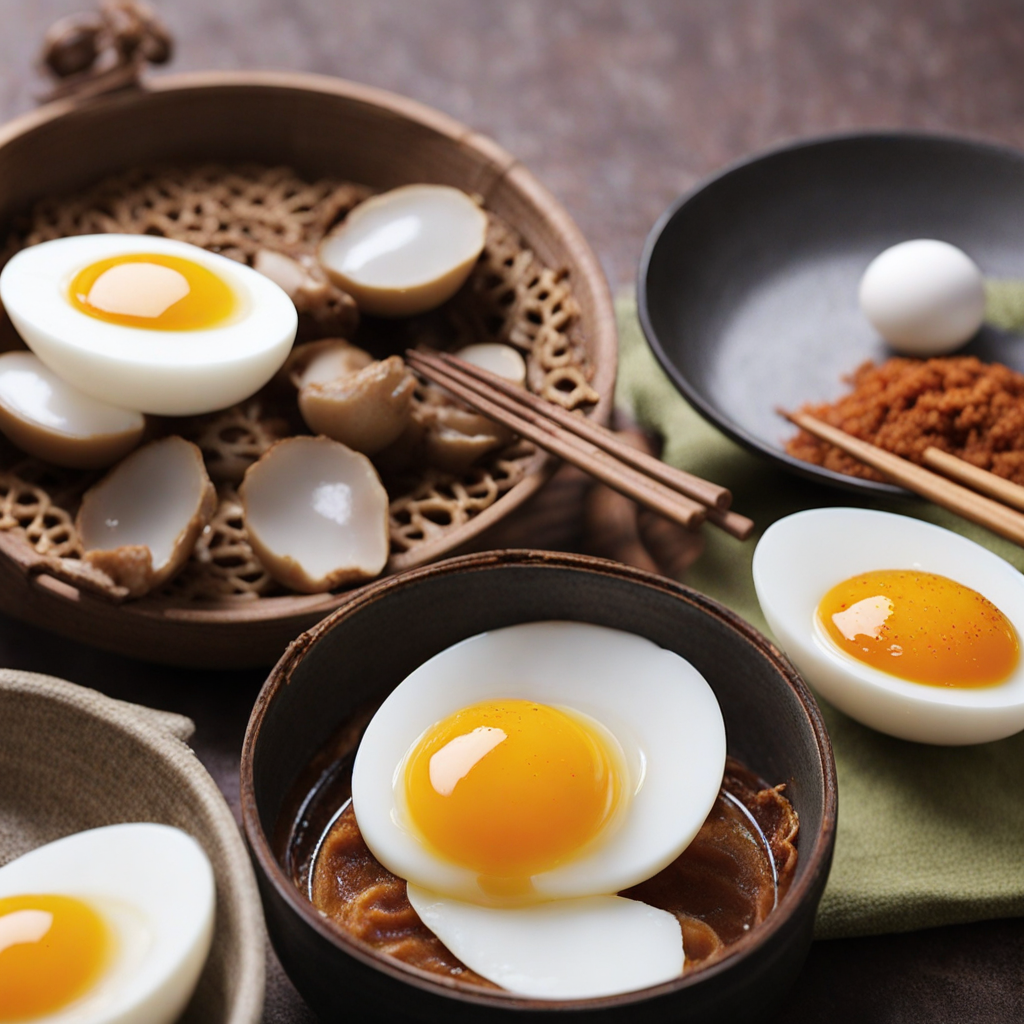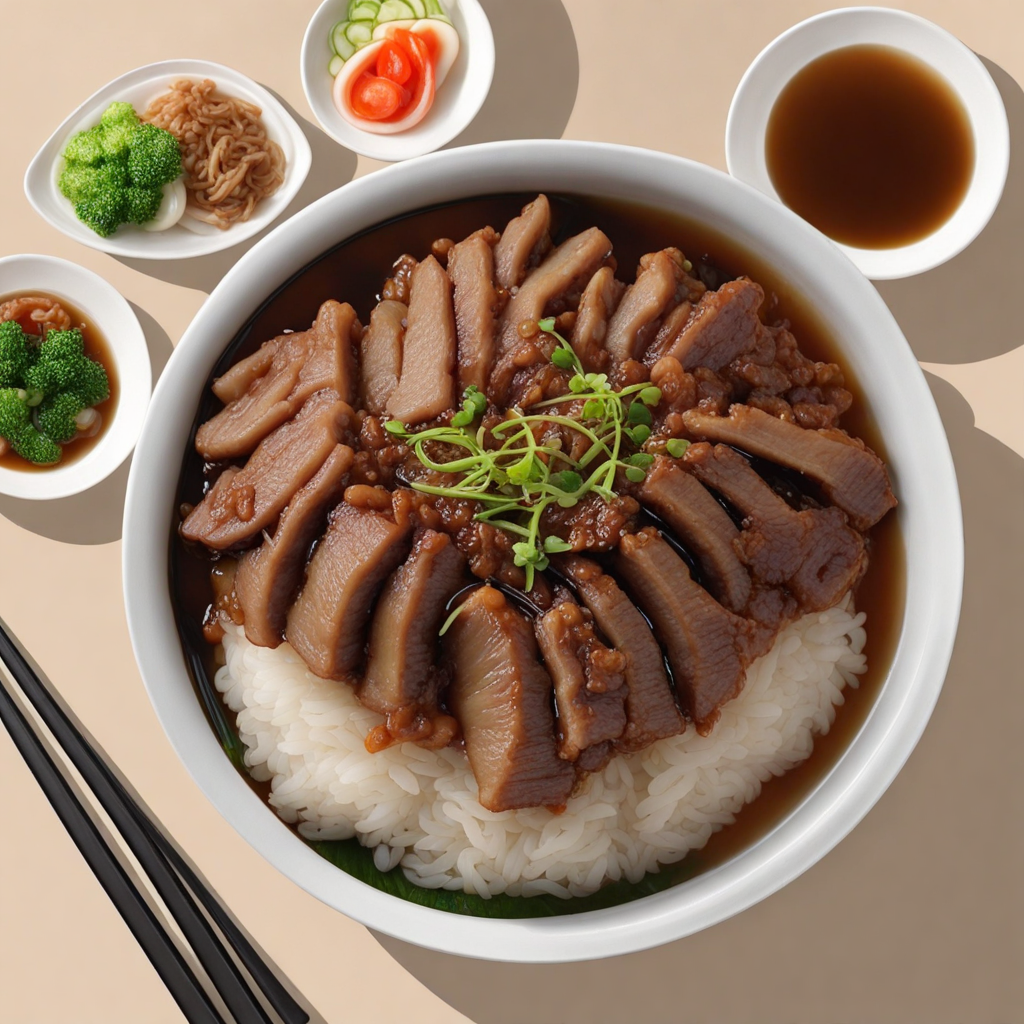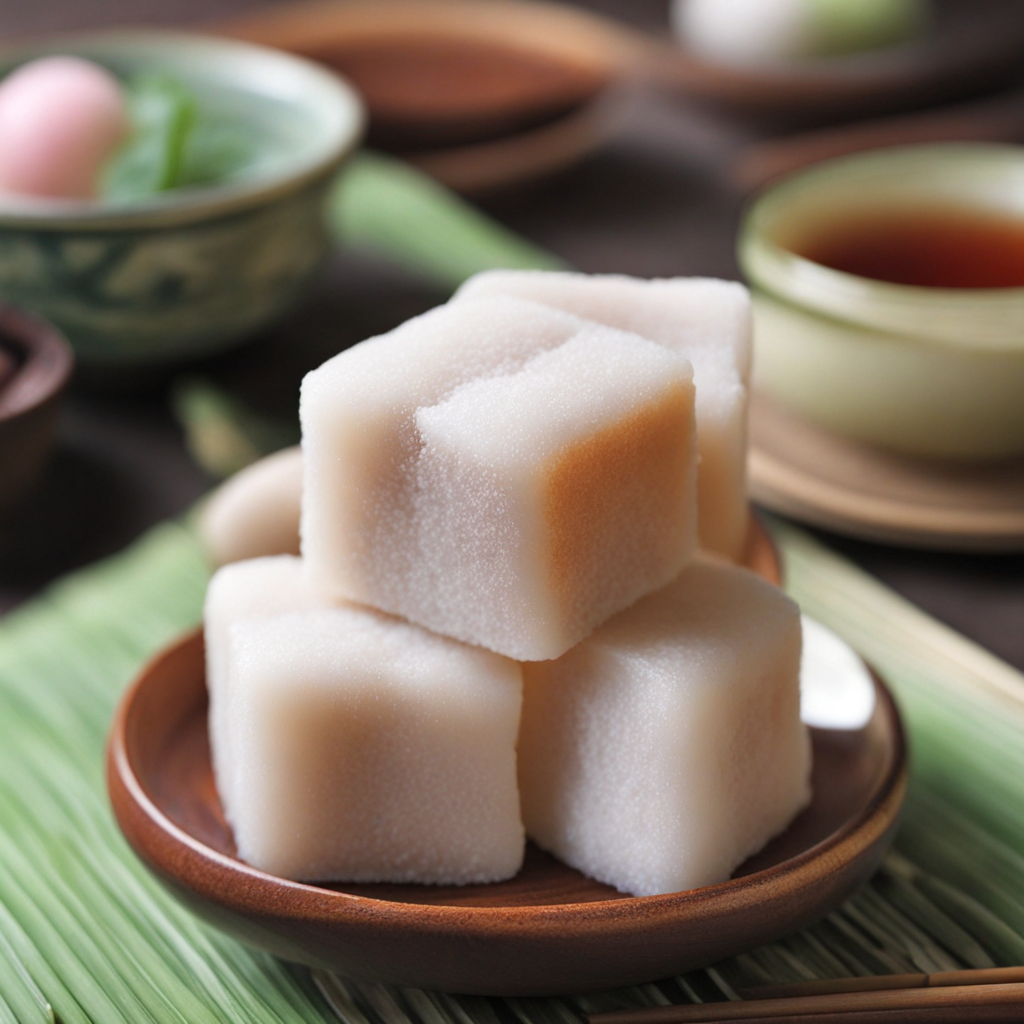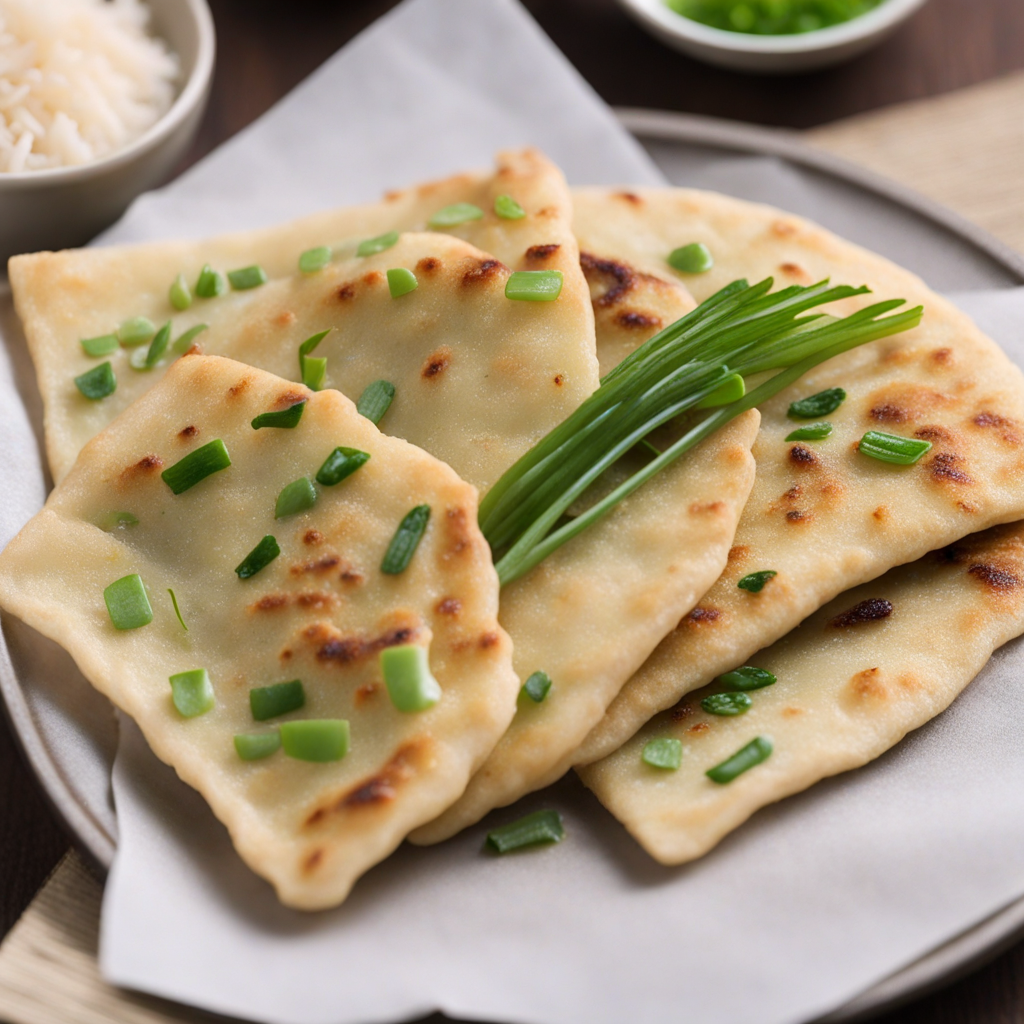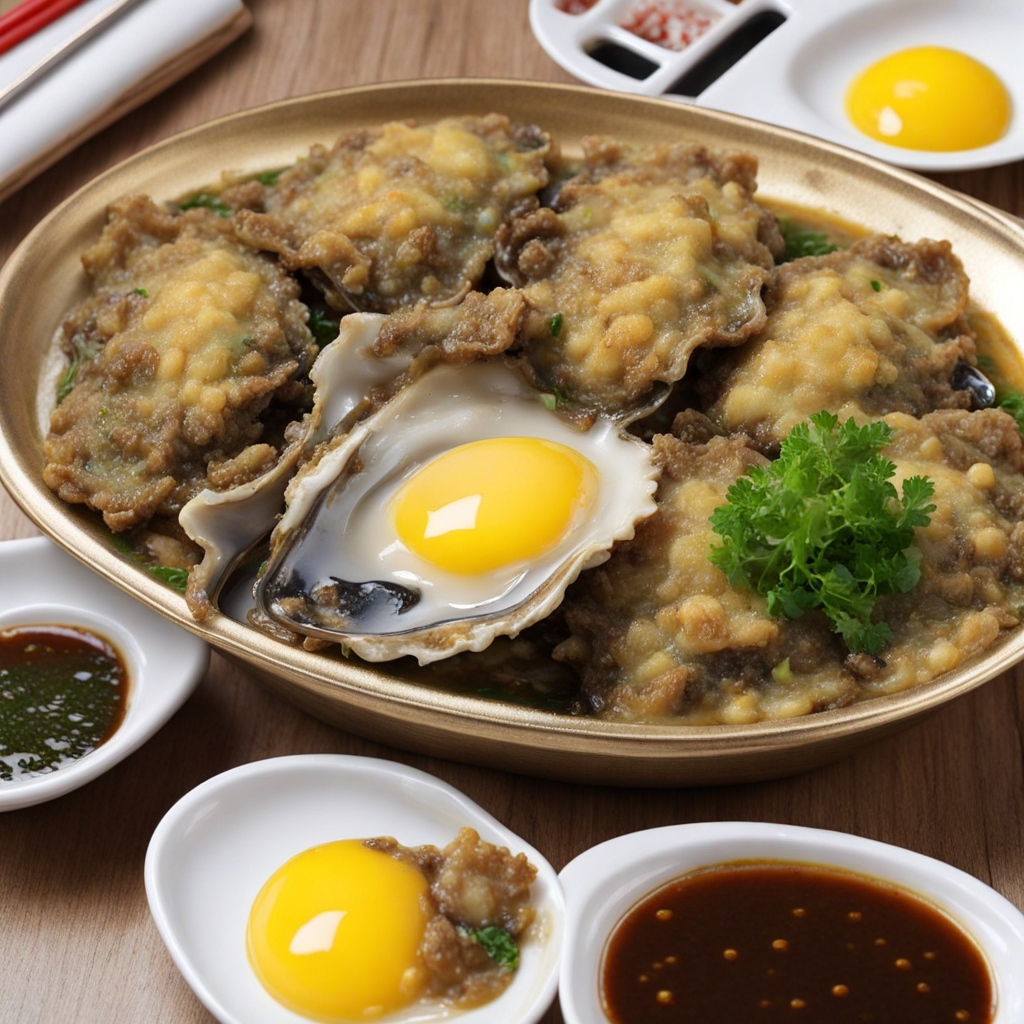Iron Eggs
Iron Eggs are a beloved Taiwanese delicacy that tantalizes the taste buds with their unique flavor and texture. These small, dark-brown eggs are not your average boiled eggs; they undergo a meticulous cooking process that involves simmering in a soy sauce-based marinade, which infuses them with a rich umami flavor. After the initial simmering, the eggs are repeatedly boiled and then dried, resulting in a chewy texture that contrasts beautifully with the tender egg white. The final product is an egg that is both savory and slightly sweet, offering a complex taste that keeps you coming back for more. The cooking process of Iron Eggs is what gives them their distinctive appeal. Each egg is carefully cooked to ensure it absorbs the flavors of the marinade, which typically includes soy sauce, spices, and sometimes even tea. This infusion not only enhances the taste but also gives the eggs a dark, almost black color that is visually striking. Street vendors and local markets often sell these snacks, and the aroma wafting through the air is enough to draw in curious food lovers eager to try something new. Many enjoy Iron Eggs as a snack on the go, but they can also be paired with rice or served as part of a larger meal. The chewy texture is satisfying to bite into, while the soy sauce marinade offers a depth of flavor that is hard to resist. Whether enjoyed at a bustling night market or as a homemade treat, Iron Eggs provide a unique tasting experience that showcases the culinary creativity of Taiwanese cuisine. They are a must-try for anyone looking to expand their palate and discover the rich flavors of Taiwan.
How It Became This Dish
The History of Iron Eggs (鐵蛋) from Taiwan Iron Eggs, or 鐵蛋 (tiě dàn), is a beloved Taiwanese snack that encapsulates the rich culinary heritage of Taiwan. This unique delicacy, characterized by its firm texture and savory flavor, has a fascinating history intertwined with the island's cultural evolution, reflecting both its local traditions and broader historical influences. #### Origins: The Birth of Iron Eggs The genesis of Iron Eggs can be traced back to the bustling streets of Tamsui, a district in New Taipei City, during the late 19th century. As the story goes, this delectable snack was first created by a street vendor named Liu, who sought a way to preserve eggs for longer periods without refrigeration. The process involved hard-boiling the eggs, then simmering them in a mixture of soy sauce, spices, and various aromatics—this method not only enhanced their flavor but also contributed to their longevity. The name "Iron Eggs" is attributed to their dark, almost metallic appearance, which results from the prolonged cooking and soaking process. The eggs are initially hard-boiled, then simmered in a soy sauce-based mixture that includes ingredients like star anise, garlic, and sometimes even rice wine or tea, which gives them a rich, umami flavor. The final result is a chewy, flavorful egg that stands in stark contrast to the typical hard-boiled egg. #### Cultural Significance Iron Eggs quickly became a staple of Taiwanese street food culture, cherished for their unique texture and taste. They are often sold by street vendors and found in night markets, where they serve as a popular snack for locals and tourists alike. The dish has also found its way into the cultural fabric of Taiwanese society, often being associated with family gatherings, festivals, and celebrations. The preparation of Iron Eggs reflects a broader culinary philosophy in Taiwan, where the emphasis is placed on maximizing flavor while minimizing waste. The ability to preserve eggs for extended periods made them an ideal food for people on the go, particularly during the era when refrigeration was not widely available. As a result, Iron Eggs became a symbol of resourcefulness and innovation in Taiwanese cooking. #### Development Over Time As Taiwan underwent significant political and social changes throughout the 20th century, Iron Eggs evolved alongside these transformations. The Japanese colonial period (1895-1945) brought about various culinary influences that impacted local food culture. Although Iron Eggs were not specifically a product of Japanese cuisine, the emphasis on preservation techniques and the introduction of soy sauce into Taiwanese cooking can be traced back to this time. After World War II, with the influx of mainland Chinese immigrants to Taiwan, the culinary scene became even more diverse. Various regional Chinese cooking styles influenced the way Iron Eggs were prepared, leading to variations that incorporated different spices and cooking methods. This adaptability allowed Iron Eggs to maintain their relevance in the ever-changing Taiwanese food landscape. In the 1980s and 1990s, as Taiwan experienced a surge in tourism and globalization, Iron Eggs gained prominence beyond the local realm. They became a sought-after souvenir for tourists, with many visitors eager to take home a taste of Taiwan. Vendors began packaging Iron Eggs for export, which helped to popularize the snack internationally. The growth of the night market culture also played a crucial role in the spread of Iron Eggs, as these vibrant culinary hubs showcased a variety of traditional Taiwanese foods. #### Modern Variations and Innovations In recent years, Iron Eggs have seen a resurgence in creativity and innovation. While traditional recipes remain popular, contemporary chefs have begun to experiment with new flavors and presentations. Some vendors now offer spicy versions, incorporating chili and Sichuan peppercorns for a modern twist, while others add unique glazes or toppings, such as sesame seeds or seaweed. Moreover, with the increasing interest in health-conscious eating, some producers have started using organic ingredients, catering to a more health-oriented clientele. The rise of vegan and vegetarian lifestyles has also prompted innovative adaptations of Iron Eggs, with plant-based versions emerging that mimic the texture and flavor of traditional eggs. #### Iron Eggs in Popular Culture Iron Eggs have also made their mark in Taiwanese popular culture, featuring in television shows, movies, and culinary competitions. Their iconic status is often showcased in media that explores Taiwanese street food, highlighting their unique appeal and cultural significance. Additionally, various food blogs and social media platforms have contributed to the global recognition of Iron Eggs, helping to establish them as a must-try dish for anyone visiting Taiwan. Furthermore, Iron Eggs are often seen as a symbol of Taiwanese identity, representing the island's rich history and diverse influences. They are frequently featured in food festivals and cultural events, where they serve as a point of pride for locals and a delicious introduction for visitors. #### Conclusion: A Culinary Legacy Iron Eggs embody more than just a snack; they represent the resilience and adaptability of Taiwanese food culture. From their humble origins in Tamsui to their current status as a beloved delicacy, Iron Eggs have journeyed through time, reflecting the island’s historical complexities and culinary innovations. As Taiwan continues to evolve, so too will Iron Eggs, serving as a testament to the island’s vibrant food scene and its ability to embrace both tradition and modernity. For anyone seeking to understand the essence of Taiwanese cuisine, a taste of Iron Eggs is not just a culinary experience but a flavorful journey through history, culture, and identity.
You may like
Discover local flavors from Taiwan


